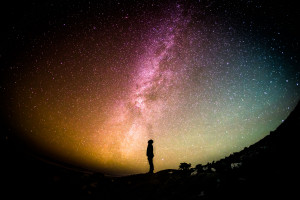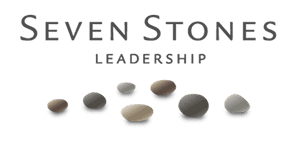What does it mean to be ethical or behave ethically in a complex, interwoven world?
 I am constantly reminded of the show The Good Place—a comedic exploration of the afterlife. In one of the latest episodes, it was revealed [spoiler alert] that it has been over 100 years since anyone was admitted to “The Good Place.” This episode describes a system for calculating the net positive or negative for all of one’s acts during a human lifetime. Points are awarded for good deeds and taken for bad ones. Simple, right? At first pass, anyway. In the current world, however, most good acts are interwoven with other hidden consequences that take points away. In our complex, scarcity-based, extractive and exploitative global economy, we are doing more harm than good, despite our best intentions. Ouch!
I am constantly reminded of the show The Good Place—a comedic exploration of the afterlife. In one of the latest episodes, it was revealed [spoiler alert] that it has been over 100 years since anyone was admitted to “The Good Place.” This episode describes a system for calculating the net positive or negative for all of one’s acts during a human lifetime. Points are awarded for good deeds and taken for bad ones. Simple, right? At first pass, anyway. In the current world, however, most good acts are interwoven with other hidden consequences that take points away. In our complex, scarcity-based, extractive and exploitative global economy, we are doing more harm than good, despite our best intentions. Ouch!
So, how then do we remain ethical agents? Good question.
Option 1: Within the current context ethics become situational. This makes sense given a fundamental tenet of the context is about the individual. Seen through the eyes of the individual, “I” make choices all day, every day. I analyze a choice, factoring in as many of the externalized costs or human rights issues or costs to the planet that I can think of to consider. Then, I act and hope for the best. Maybe I even perform an act that functions like a carbon offset or donate to a cause. I act alone and hope I make it to “The Good Place.”
or…
Option 2: Begin, as many, like Margaret Wheatley suggests, to notice and operate from within “new” or more accurate models for living and leading where the ethics are baked into the context itself. The dilemma illustrated in The Good Place reveals that we are not alone, that individual actions have a cascading impact on all of life. We are woven into a tapestry. If we embrace this knowledge, we begin to operate as a little piece of a larger, mysterious whole. If we belong here together, then how do the ethics look? What ethics are obvious knowing that we are, as Daniel Schmachtenberger suggests, “…an emergent property of reality.” Humberto Maturana says it this way: “We are beings within a context of our ecological niche co created by all of the life that precedes us and envelops us. There are cultures that have arisen already on earth that operate from this premise. They are not the dominant cultures dominating our models of progress and growth and development. Their ethics are an offspring of their cosmology.”
How does this look on the ground for us right here and right now?
Well, we have a vendor that does mission critical work for us. A person within her company has been doing extra work for us beyond what her company normally offers. This person came to us and pitched us a job. Immediately, we said we would not do anything until we had spoken directly with our vendor. That relationship was primary. That relationship mattered. How we handled any transition of one of her people to our team would only work if it worked for her. Period. The ethics for that situation were not contemplated based on this particular situation. We knew exactly how to respond based on a larger framework within which we were operating: sustainable abundance. It was only sustainable if it was ethical, reciprocal and just. It was only abundant if we were aware that there was enough—in fact plenty for all of us—and no matter what the outcome, all of us would get what we needed.
While we have the option to choose which way to remain ethical agents—given that all of our ethics are an offspring of our cosmology and given that stories do matter—how do you wish to orient ethically in a complex, interconnected world? If you explore creating a life of sustainable abundance, you will find the ethics by which you live are embedded within the frame.



